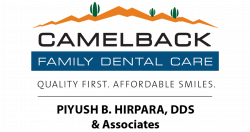Dental Exams and Cleanings
Many patients believe that they can afford to miss annual or biannual dental appointments, but this is not the case. Your dental professional cares about your well being and takes measures to ensure your health and safety. Your oral health has a significant impact on your overall health, so it is important to keep your teeth clean and healthy. Even conditions like heart disease can be less likely to develop if you’re keeping your teeth clean.
Good oral health can also mean a healthier pregnancy, so be sure to brush and floss your teeth daily and use ADA approved dental products. Your dentist can provide cleanings as well as exams that allow them to:
- Check for signs of decay in your teeth
- Determine the presence of gum disease
- Prevention of losing teeth
- Brighten the appearance of your smile
- Maintain pristine oral health
Regular Dental Exams are Important
Regular dental exams by your Dental professional allow you to get preventative dental care. Your dentist recommends biannual visits in order to keep teeth clean and maintain your oral health. Not only will the dentist take a look at your teeth, they will also look for any signs of oral cancer and abnormalities in the face, tongue, and neck. Early detection can increase the chance of successful treatment. If any issues are spotted, we can recommend you to a specialist for further testing.
Missing dental appointments often can result in worsening dental issues. Some patients report that they have not visited the dentist in several years, which can lead to developing dental problems and deep cavities and pockets of decay. You should visit your dentist often, keeping up with regular cleanings and exams and x-rays to make sure your mouth is healthy and beautiful.
Different Types of Dental Cleaning
There are three main types of dental cleanings: prophylaxis cleaning, scaling and root planing, and gross debridement. While they all accomplish essentially the same thing — cleaner teeth — they are performed differently and for different reasons. In order to fully understand why and when each type of cleaning is performed, the following is everything you need to know.
Prophylaxis Cleaning
A prophylaxis cleaning, otherwise known as a routine cleaning, is performed on healthy patients who just need routine maintenance in order to ensure oral health. In many instances, a prophylaxis cleaning is performed by a dentist or a hygienist. It entails removing all the plaque from teeth, removing deeper, hardened plaque (calculus) and any stains that exist on the surface of the teeth.
Most dentists recommend a prophylaxis cleaning once every six months to ensure plaque has not begun to build up on the surface of the teeth and to clean off hardened plaque if it already has developed.
Scaling and Root Planing
Scaling and root planing, which is also referred to as a deep cleaning, is typically only administered to patients at high risk of developing gum disease or patients who have already developed gum disease.
If an excess of plaque begins to build up over time without being properly cleaned off, it can harden and turn into tartar or calculus and has the potential of causing gum disease and other serious oral health complications. When this occurs, scaling and root planing is needed to ensure that the hardened plaque is cleaned off. Scaling and root planing is most often performed on patients who have signs of gum disease such as bleeding gums, swollen gums or loose teeth.
Gross Debridement Cleaning
A gross debridement is a dental cleaning procedure that is often administered by a dentist in order to determine if there are any teeth issues that were not initially noticed before the dental cleaning. A gross debridement is most often performed on patients who have not visited the dentist in more than a year or who have developed a buildup of hardened plaque on the surface of the teeth.
Essentially, a gross debridement is performed by thoroughly working to remove any and all plaque buildup on the teeth and gums. While a simple gross debridement does not take long, debridement that are performed on damaged teeth with a large amount of plaque buildup may take a while to complete.
New Patient
Give us a call today to learn more about our services! Find out for yourself why thousands of patients have chosen Camelback Family Dental Care to be their families dentist.
- Need Assistance?


